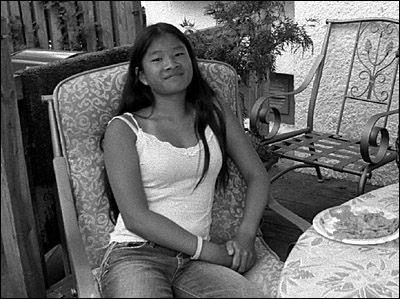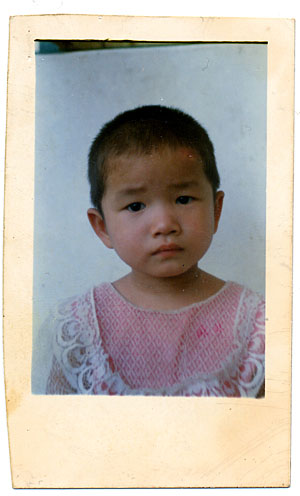 |
||
|
|

|
|
Ghosts of the Orphanage |
||||
Orphanages give perfunctory care. Without the love and stimulation of family life, a child's development can be delayed. So when an older child is adopted, she may struggle to learn what some children pick up easily as infants. As the years go by in an adopted family, the child and the parents discover what early experiences can be undone, relearned or accepted. Leah's parents, Becky and Tom Helgesen agree they weren't really prepared for the journey they would embark on with Leah when they adopted her back in 1995.
Becky laughs at the memory of the little girl with the serious expression, who sized them up and then turned her attention back to the television set in the hotel room, something apparently more amazing than the Caucasian couple who had just walked through the door. Tom, Leah's dad, has a slightly different recollection of that first encounter. "I thought she looked scared to death," he says. "Yes," Becky agrees, "But she looked like she wasn't going to let being scared to death stop her from trying to win, though." She was so self-sufficient Tom says Leah has always been a fighter and a survivor. And he thinks that spirit probably helped her survive in an orphanage, where the biggest and strongest kids get the most to eat. But that toughness had a downside when Leah joined her family. Becky remembers how, when Leah would skin her knee, she would glance down, and keep playing. It didn't occur to her to go to an adult for help or comfort. When thunderstorms or nightmares woke her at night she would hide under the bed or sleep on the floor instead of calling to her parents. "We would say 'Leah, why didn't you come upstairs to us?'" Tom recalls, "And she'd say 'Oh, I didn't want to wake you up.'" They had to keep encouraging her. "We're your mom and your dad, Leah," Tom says they told her. "When you're scared, when you have trouble, you come to us and we'll help you." |
||||
|




